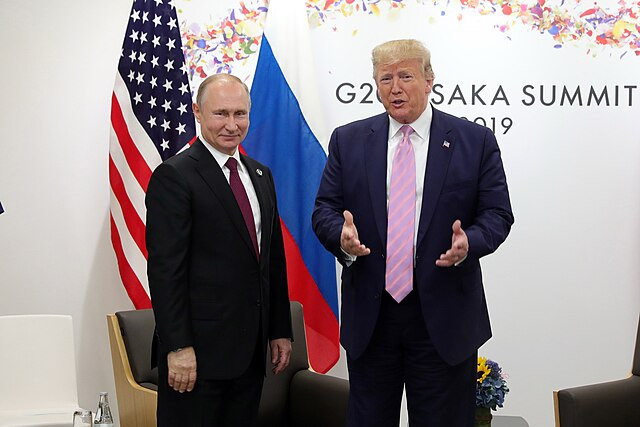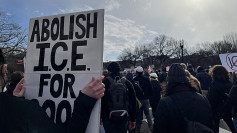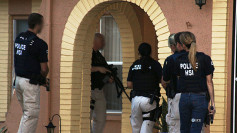President Donald Trump said he rebuffed Russian President Vladimir Putin's offer to assist in resolving the Israel-Iran conflict, instead urging Moscow to focus on ending its war in Ukraine, which has claimed more than 12,000 civilian lives and continues to draw sharp scrutiny from NATO allies.
"As you know Vladimir called me up. He said, 'Can I help you with Iran?' I said, 'No, I don't need help with Iran. I need help with you,'" Trump said Tuesday morning before departing for the NATO summit in the Netherlands, according to remarks published by Fox News. "And I hope we're going to be getting a deal done with Russia, which is a shame. Six thousand soldiers died last week."
The statement comes as Russian forces continue to bombard Ukrainian civilian areas with missiles, artillery, and drones. Ukrainian officials reported at least 18 civilian deaths and nearly 200 injuries in the past 24 hours, as the war, now in its fourth year, shows little sign of de-escalation.
Ukrainian President Volodymyr Zelensky is expected to meet NATO leaders at the summit, where the alliance is poised to adopt a 5% defense spending target for member states. Ukraine, not a NATO member, has pushed for more military aid amid growing uncertainty over whether the Trump administration will authorize additional U.S. support after remaining commitments inherited from the Biden era are exhausted.
Trump, who campaigned on a pledge to bring "peace through strength," has repeatedly criticized the financial burden of U.S. military aid to Ukraine and expressed skepticism over Kyiv's demands. He has signaled that any future peace deal must reflect battlefield realities, even as Ukraine seeks more assertive backing from Western allies.
Meanwhile, the Kremlin pushed back against criticism that it has not sufficiently supported Iran during its recent conflict with Israel. Iranian officials reportedly viewed Russia's response as weak, particularly after the U.S. and Israel struck Iranian nuclear sites last week.
"Russia actually supported Iran with its clear position," Kremlin spokesman Dmitry Peskov said Tuesday. He added that Iranian Foreign Minister Abbas Araghchi "appreciated Moscow's stance" during a meeting with Putin in Moscow on Monday.
Putin has condemned the U.S. strikes as "unjustified" and signaled that Russia stands with the Iranian people under a strategic cooperation treaty signed in January. However, he stopped short of offering any military assistance. A Reuters report that Iranian Supreme Leader Ali Khamenei had sent a written message to Putin was denied by the Kremlin.
"The fact that there were certain messages from the Iranian leadership is true. But this Reuters report is not true," Peskov said. "There had been no written document handed over."
Despite tensions over its limited response, Moscow welcomed the ceasefire between Israel and Iran that Trump announced Monday. "If it has really been possible to achieve a ceasefire, then this can only be welcomed," Peskov said, crediting Qatar with helping to broker the agreement. "This is what the Russian Federation has been calling for since the very beginning of this conflict."
Trump's successful mediation of the Israel-Iran ceasefire has been touted by White House officials as a diplomatic win. But the president's public rebuke of Putin underscores the fragile nature of his broader strategy, as conflicts on two fronts test his capacity to manage rival powers and reassure allies.
While Russia praised the ceasefire, Peskov acknowledged that "it is still too early" to assess damage to Iran's nuclear infrastructure. "Some information is coming through the appropriate channels," he said, "hardly anyone has a clear understanding right now."






